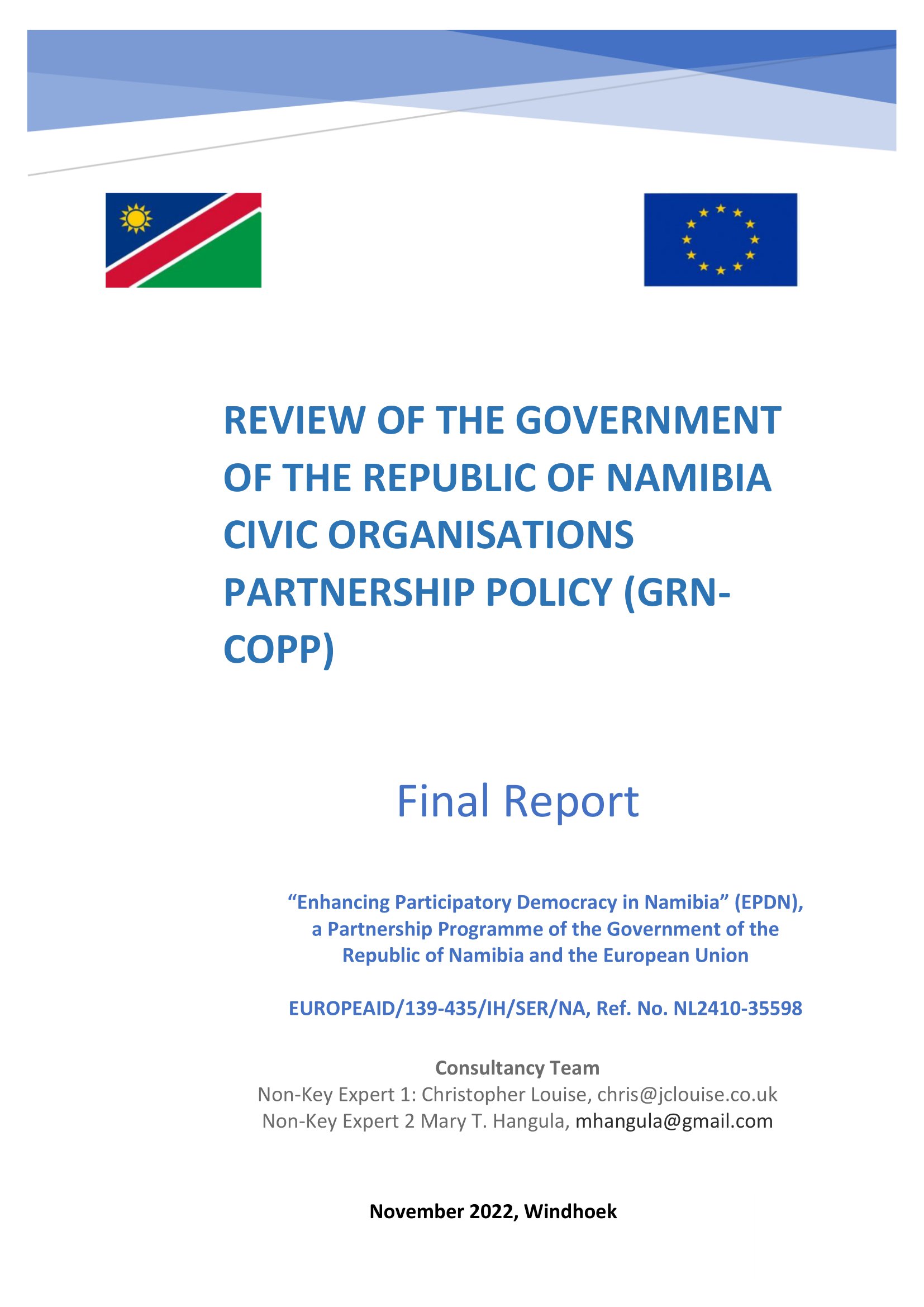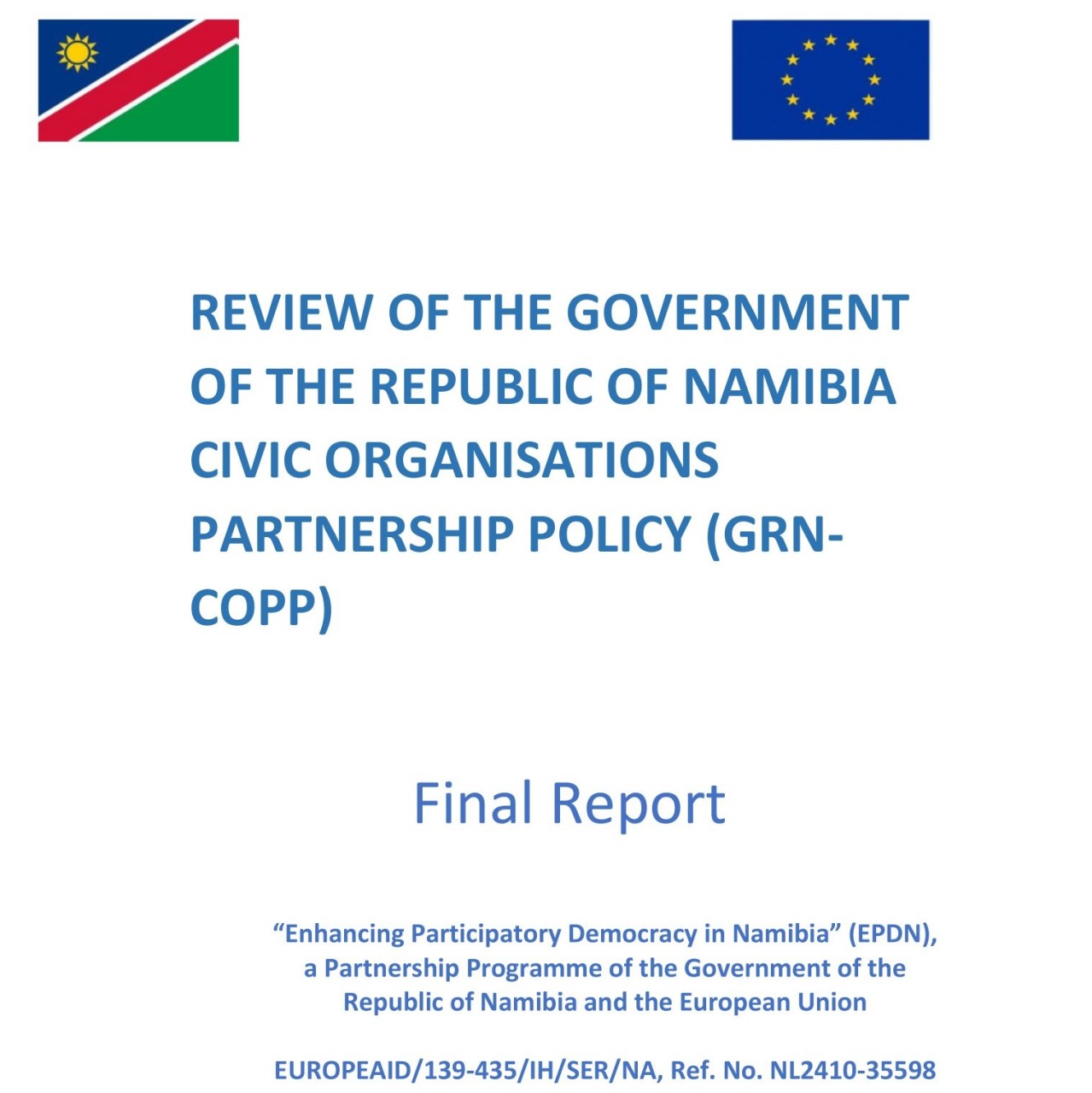EPDN - Outcome of the Government of the Republic of Namibia - Civic Organisations Partnership Policy (GRN-COPP) Review
The outcome of the Government of the Republic of Namibia - Civic Organisations Partnership Policy (GRN-COPP) review is now available - in the form of a report.
Review of the GRN-COPP: Final Report
Concluding Observations
Insofar as this analysis has reviewed the GRN-COPP and its implementation, it is clear that the policy was bound to fall short of original expectations. The absence of a clearly defined implementation strategy with concrete milestones and measurable performance targets attached to predictable budget lines meant that from the outset the policy was simply not implementable. At best the policy met a need to deepen the philosophy of partnership between the government and civic organisations. It took the aspirations of Vision 2030 to another level of appreciation and promoted civil society’s indispensable role in supporting national development. On the other hand, the policy was hobbled by four major barriers which were a product of a flawed design process and structural factors outside the scope of the policy and NPC.
- First, there was a failure to carry out an extensive validation exercise (following the initial round of consultation) of the policy’s content which would have tested its proposals, including the acceptability of voluntary registration. This could have provided an opportunity for the NPC and civic organisations to jointly assess whether the policy was fit for purpose.
- Second, the NPC did not dedicate adequate time and resources to translate the policy into an operational framework for government-civil society cooperation. Institutional inertia and lack of funding ensured policy implementation, if it was ever to be realized, would have to be supported by others. Arguably, the 10th EDF Namibia civil society support programme (NCCSP) which supported the NANGOF Trust and the Civil Society Foundation of Namibia (CSFN) was an attempt to operationalize the policy. However, the final NCCSP evaluation describes in detail how this experiment was unable to secure the sustainability of civil society capacities and action nationwide.
- Third, the generic quality of the GRN-COPP meant that it was quickly overtaken by the more targeted and relevant sector policies in a variety of areas, which were championed and funded by different line ministries. These ministries did not need a generic partnership policy to guide their actions in identifying and developing working relationships with relevant civic organisations.
- Fourth, deficiencies in the operation of local government structures impede civic organizations’ access to local decision-making and curtail their ability to establish partnerships with local authorities.
Enhancing Participatory Democracy in Namibia (EPDN) Programme
"EPDN is thanking all organisations and individuals for their valuable contribution to the development of this document - without the open sharing of views and insights, the authors would not have been able to conclude and present this report.
We hope that the recommendations of this report will inspire further debate. But more over a swift and constructive solution in the form of creating a workable, effective Framework of Engagement Implementation Modus to boost civil society -government cooperation in Namibia". Christine Leiser, Enhancing Participatory Democracy in Namibia (EPDN) Programme Team leader

Click on the following links to read/download the -
- Review of the GRN-COPP Final Report: https://www.civic264.org.na/images/pdf/2023/6/Final_Report_GRN_COPP_REVIEW_November_2022_.pdf
- EPDN Programme: https://www.civic264.org.na/info-for-csos/enhancing-participatory-democracy-epdn
When you subscribe to the blog, we will send you an e-mail when there are new updates on the site so you wouldn't miss them.
